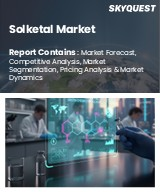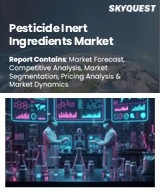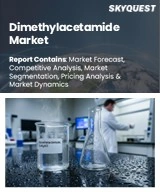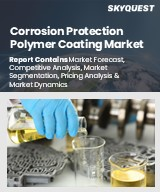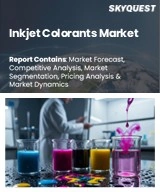
|
시장보고서
상품코드
1754106
특수 비등점(SBP) 용제 시장 보고서 : 용제 기반별, 애플리케이션별, 지역별(2025-2033년)Special Boiling Point Solvents Market Report by Solvent Base (Petroleum Ether, Rubber Solvent, VM and P Naphtha), Application (Paints and Coatings, Adhesives, Rubbers and Tires, Resins, Cleaning Agents, and Others), and Region 2025-2033 |
||||||
세계의 특수 비등점(SBP) 용제 시장 규모는 2024년에 29억 달러에 달했습니다. IMARC Group은 2025-2033년의 성장률(CAGR)이 4.1%로, 2033년에는 43억 달러에 달할 것으로 예측하고 있습니다.
특수비점(SBP) 용매란 파라핀계 및 나프텐계 탄화수소로부터 제조되고 방향족 함량이 매우 적은 고속 및 중속 증발성 액체를 말합니다. 석유 에테르, 바니시 제조 및 도장용 나프타(VM &N), 톨루엔, 고무용제 등이 SBP 용매의 대표적인 것입니다. 이들은 세정제, 추출제, 보조제, 탈지제로 널리 사용되며, SBP 용매는 점도 조절, 피막 형성, 안료 및 기판의 습윤, 분산 및 접착을 돕고, SBP 용매는 전체 방향족 및 벤젠 함량이 매우 낮고, 다환방향족은 거의 검출되지 않습니다. 그 결과, SBP 용매는 페인트 및 코팅, 자동차, 고무, 화장품 산업 등 다양한 용도로 사용되고 있습니다.
특수 비등점(SBP) 용매 시장 동향 :
속건성 보조, 점도 조절, 품질 향상, 안료, 바인더, 첨가제 등의 화합물 용해를 목적으로 페인트 및 코팅제에서 제품 사용이 증가하고 있는 것은 시장 성장을 가속하는 주요 요인 중 하나입니다. 또한 장식, 부식 방지, 마찰 방지, 경도 향상, 외부 손상 방지 등의 목적으로 건설 산업 및 자동차 산업에서 SBP 용제형 페인트 및 코팅제가 널리 채택되고 있는 것도 시장 전망을 밝게 하고 있습니다. 또한 원료의 가공을 개선하고 타이어, 도어 매트 등 다양한 제품의 제조에서 가황 전 고무층에 접착력을 부여하기 위해 고무 산업에서 제품 사용이 증가하고 있는 것이 시장 성장을 크게 촉진하고 있습니다. 또한 접착제, 인쇄 잉크, 가공용 광택제, 세정제, 방수 컴파운드 제조를 위한 제품 수요 증가가 시장 성장을 가속하고 있습니다. 또한 방향족, 식용유, 지방을 생산하기 위한 추출제로서 제품 사용이 증가하면서 시장 성장에 탄력을 받고 있습니다. 기타 요인으로는 광범위한 조사 개발(R&D) 활동, 중합에서 반응 매체로 용매의 광범위한 사용, 제약 산업의 괄목할 만한 성장 등이 시장 성장을 지원하고 있습니다.
이 보고서에서 다룬 주요 질문
- 2024년 세계 특수 비등점(SBP) 용매 시장 규모는?
- 2025-2033년 세계의 특수 비등점(SBP) 용매 시장 성장률 전망은?
- 세계의 특수 비등점(SBP) 용매 시장을 주도하는 주요 요인은?
- COVID-19가 세계의 특수 비등점(SBP) 용매 시장에 미치는 영향은?
- 세계의 특수 비등점(SBP) 용매 시장에서의 용매 기반 분류는?
- 세계의 특수 비등점(SBP) 용매 시장에서의 용도별 분류는?
- 세계의 특수 비등점(SBP) 용매 시장 주요 지역은?
- 세계의 특수 비등점(SBP) 용매 시장에서 주요 기업은?
목차
제1장 서문
제2장 조사 범위와 조사 방법
- 조사의 목적
- 이해관계자
- 데이터 소스
- 1차 정보
- 2차 정보
- 시장 추정
- 보텀업 어프로치
- 톱다운 어프로치
- 조사 방법
제3장 개요
제4장 서론
- 개요
- 주요 업계 동향
제5장 세계의 특수 비등점(SBP) 용제 시장
- 시장 개요
- 시장 실적
- COVID-19의 영향
- 시장 예측
제6장 시장 내역 : 용제 기반별
- 석유 에테르
- 고무 용제
- VM 나프타·P 나프타
제7장 시장 내역 : 애플리케이션별
- 페인트·코팅
- 접착제
- 고무·타이어
- 수지
- 세정제
- 기타
제8장 시장 내역 : 지역별
- 북미
- 미국
- 캐나다
- 아시아태평양
- 중국
- 일본
- 인도
- 한국
- 호주
- 인도네시아
- 기타
- 유럽
- 독일
- 프랑스
- 영국
- 이탈리아
- 스페인
- 러시아
- 기타
- 라틴아메리카
- 브라질
- 멕시코
- 기타
- 중동 및 아프리카
- 시장 내역 : 국가별
제9장 SWOT 분석
- 개요
- 강점
- 약점
- 기회
- 위협
제10장 밸류체인 분석
제11장 Porter's Five Forces 분석
- 개요
- 바이어의 교섭력
- 공급 기업의 교섭력
- 경쟁의 정도
- 신규 진출업체의 위협
- 대체품의 위협
제12장 가격 분석
제13장 경쟁 구도
- 시장 구조
- 주요 기업
- 주요 기업의 개요
- Banner Chemicals Limited(2M Holdings Group)
- Bharat Petroleum Corporation Limited
- Compania Espanola de Petroleos S.A.U.
- DHC Solvent Chemie GmbH
- ExxonMobil Corporation
- Ganga Rasayanie Pvt Ltd
- Gulf Chemicals and Industrial Oils Co.
- HCS Group GmbH
- KH Chemicals BV
- Shell plc
The global special boiling point solvents market size reached USD 2.9 Billion in 2024. Looking forward, IMARC Group expects the market to reach USD 4.3 Billion by 2033, exhibiting a growth rate (CAGR) of 4.1% during 2025-2033.
Special boiling point (SBP) solvents refer to fast and medium evaporating fluids manufactured from paraffinic and naphthenic hydrocarbons with very low aromatic contents. Petroleum ether, varnish makers and painters' naphtha (VM & N), toluene, and rubber solvent are some of the common variants of SBP solvents. They are widely used as cleaning agents, extractants, auxiliaries, and degreasing agents. SBP solvents aid in controlling viscosity, film formation, and wetting pigments and substrates that help with dispersion and adhesion. They exhibit very low total aromatics and benzene content with virtually undetectable levels of polycyclic aromatics. As a result, SBP solvents find extensive applications across the paints and coatings, automotive, rubber, and cosmetics industries.
Special Boiling Point Solvents Market Trends:
The increasing product utilization in paint and coating formulations to assist in quick drying, control viscosity, improve quality, and dissolve compounds, such as pigments, binders, and additives, is one of the key factors driving the market growth. In addition, the widespread adoption of SBP solvent-based paints and coatings in construction and automotive industries for decoration, corrosion protection, anti-friction, hardness, and prevention of external damages is creating a positive outlook for the market. Furthermore, the rising product utilization in the rubber industry to improve the processing of raw materials and provide adhesion to rubber layers before vulcanization in the manufacturing of various goods, such as tires and door mats, is providing a considerable boost to the market growth. Additionally, the increasing product demand for producing adhesives, printing inks, processing polishes, cleaning agents, and waterproofing compounds are facilitating the market growth. Moreover, the increasing product utilization as an extractant to manufacture aromatics, edible oils, and fats is providing an impetus to the market growth. Other factors, including extensive research and development (R&D) activities, widespread utilization of the solvent as a reaction medium in polymerization, and significant growth in the pharmaceutical industry, are supporting the market growth.
Key Market Segmentation:
Breakup by Solvent Base:
- Petroleum Ether
- Rubber Solvent
- VM and P Naphtha
Breakup by Application:
- Paints and Coatings
- Adhesives
- Rubbers and Tires
- Resins
- Cleaning Agents
- Others
Breakup by Region:
- North America
- United States
- Canada
- Asia-Pacific
- China
- Japan
- India
- South Korea
- Australia
- Indonesia
- Others
- Europe
- Germany
- France
- United Kingdom
- Italy
- Spain
- Russia
- Others
- Latin America
- Brazil
- Mexico
- Others
- Middle East and Africa
Competitive Landscape:
The competitive landscape of the industry has also been examined along with the profiles of the key players being Banner Chemicals Limited (2M Holdings Group), Bharat Petroleum Corporation Limited, Compania Espanola de Petroleos S.A.U., DHC Solvent Chemie GmbH, ExxonMobil Corporation, Ganga Rasayanie Pvt Ltd, Gulf Chemicals and Industrial Oils Co., HCS Group GmbH, KH Chemicals BV, and Shell plc.
Key Questions Answered in This Report
- 1.What was the size of the global special boiling point solvents market in 2024?
- 2.What is the expected growth rate of the global special boiling point solvents market during 2025-2033?
- 3.What are the key factors driving the global special boiling point solvents market?
- 4.What has been the impact of COVID-19 on the global special boiling point solvents market?
- 5.What is the breakup of the global special boiling point solvents market based on the solvent base?
- 6.What is the breakup of the global special boiling point solvents market based on the application?
- 7.What are the key regions in the global special boiling point solvents market?
- 8.Who are the key players/companies in the global special boiling point solvents market?
Table of Contents
1 Preface
2 Scope and Methodology
- 2.1 Objectives of the Study
- 2.2 Stakeholders
- 2.3 Data Sources
- 2.3.1 Primary Sources
- 2.3.2 Secondary Sources
- 2.4 Market Estimation
- 2.4.1 Bottom-Up Approach
- 2.4.2 Top-Down Approach
- 2.5 Forecasting Methodology
3 Executive Summary
4 Introduction
- 4.1 Overview
- 4.2 Key Industry Trends
5 Global Special Boiling Point Solvents Market
- 5.1 Market Overview
- 5.2 Market Performance
- 5.3 Impact of COVID-19
- 5.4 Market Forecast
6 Market Breakup by Solvent Base
- 6.1 Petroleum Ether
- 6.1.1 Market Trends
- 6.1.2 Market Forecast
- 6.2 Rubber Solvent
- 6.2.1 Market Trends
- 6.2.2 Market Forecast
- 6.3 VM and P Naphtha
- 6.3.1 Market Trends
- 6.3.2 Market Forecast
7 Market Breakup by Application
- 7.1 Paints and Coatings
- 7.1.1 Market Trends
- 7.1.2 Market Forecast
- 7.2 Adhesives
- 7.2.1 Market Trends
- 7.2.2 Market Forecast
- 7.3 Rubbers and Tires
- 7.3.1 Market Trends
- 7.3.2 Market Forecast
- 7.4 Resins
- 7.4.1 Market Trends
- 7.4.2 Market Forecast
- 7.5 Cleaning Agents
- 7.5.1 Market Trends
- 7.5.2 Market Forecast
- 7.6 Others
- 7.6.1 Market Trends
- 7.6.2 Market Forecast
8 Market Breakup by Region
- 8.1 North America
- 8.1.1 United States
- 8.1.1.1 Market Trends
- 8.1.1.2 Market Forecast
- 8.1.2 Canada
- 8.1.2.1 Market Trends
- 8.1.2.2 Market Forecast
- 8.1.1 United States
- 8.2 Asia-Pacific
- 8.2.1 China
- 8.2.1.1 Market Trends
- 8.2.1.2 Market Forecast
- 8.2.2 Japan
- 8.2.2.1 Market Trends
- 8.2.2.2 Market Forecast
- 8.2.3 India
- 8.2.3.1 Market Trends
- 8.2.3.2 Market Forecast
- 8.2.4 South Korea
- 8.2.4.1 Market Trends
- 8.2.4.2 Market Forecast
- 8.2.5 Australia
- 8.2.5.1 Market Trends
- 8.2.5.2 Market Forecast
- 8.2.6 Indonesia
- 8.2.6.1 Market Trends
- 8.2.6.2 Market Forecast
- 8.2.7 Others
- 8.2.7.1 Market Trends
- 8.2.7.2 Market Forecast
- 8.2.1 China
- 8.3 Europe
- 8.3.1 Germany
- 8.3.1.1 Market Trends
- 8.3.1.2 Market Forecast
- 8.3.2 France
- 8.3.2.1 Market Trends
- 8.3.2.2 Market Forecast
- 8.3.3 United Kingdom
- 8.3.3.1 Market Trends
- 8.3.3.2 Market Forecast
- 8.3.4 Italy
- 8.3.4.1 Market Trends
- 8.3.4.2 Market Forecast
- 8.3.5 Spain
- 8.3.5.1 Market Trends
- 8.3.5.2 Market Forecast
- 8.3.6 Russia
- 8.3.6.1 Market Trends
- 8.3.6.2 Market Forecast
- 8.3.7 Others
- 8.3.7.1 Market Trends
- 8.3.7.2 Market Forecast
- 8.3.1 Germany
- 8.4 Latin America
- 8.4.1 Brazil
- 8.4.1.1 Market Trends
- 8.4.1.2 Market Forecast
- 8.4.2 Mexico
- 8.4.2.1 Market Trends
- 8.4.2.2 Market Forecast
- 8.4.3 Others
- 8.4.3.1 Market Trends
- 8.4.3.2 Market Forecast
- 8.4.1 Brazil
- 8.5 Middle East and Africa
- 8.5.1 Market Trends
- 8.5.2 Market Breakup by Country
- 8.5.3 Market Forecast
9 SWOT Analysis
- 9.1 Overview
- 9.2 Strengths
- 9.3 Weaknesses
- 9.4 Opportunities
- 9.5 Threats
10 Value Chain Analysis
11 Porters Five Forces Analysis
- 11.1 Overview
- 11.2 Bargaining Power of Buyers
- 11.3 Bargaining Power of Suppliers
- 11.4 Degree of Competition
- 11.5 Threat of New Entrants
- 11.6 Threat of Substitutes
12 Price Analysis
13 Competitive Landscape
- 13.1 Market Structure
- 13.2 Key Players
- 13.3 Profiles of Key Players
- 13.3.1 Banner Chemicals Limited (2M Holdings Group)
- 13.3.1.1 Company Overview
- 13.3.1.2 Product Portfolio
- 13.3.2 Bharat Petroleum Corporation Limited
- 13.3.2.1 Company Overview
- 13.3.2.2 Product Portfolio
- 13.3.2.3 Financials
- 13.3.2.4 SWOT Analysis
- 13.3.3 Compania Espanola de Petroleos S.A.U.
- 13.3.3.1 Company Overview
- 13.3.3.2 Product Portfolio
- 13.3.3.3 SWOT Analysis
- 13.3.4 DHC Solvent Chemie GmbH
- 13.3.4.1 Company Overview
- 13.3.4.2 Product Portfolio
- 13.3.5 ExxonMobil Corporation
- 13.3.5.1 Company Overview
- 13.3.5.2 Product Portfolio
- 13.3.5.3 Financials
- 13.3.5.4 SWOT Analysis
- 13.3.6 Ganga Rasayanie Pvt Ltd
- 13.3.6.1 Company Overview
- 13.3.6.2 Product Portfolio
- 13.3.7 Gulf Chemicals and Industrial Oils Co.
- 13.3.7.1 Company Overview
- 13.3.7.2 Product Portfolio
- 13.3.8 HCS Group GmbH
- 13.3.8.1 Company Overview
- 13.3.8.2 Product Portfolio
- 13.3.9 KH Chemicals BV
- 13.3.9.1 Company Overview
- 13.3.9.2 Product Portfolio
- 13.3.10 Shell plc
- 13.3.10.1 Company Overview
- 13.3.10.2 Product Portfolio
- 13.3.10.3 Financials
- 13.3.1 Banner Chemicals Limited (2M Holdings Group)






